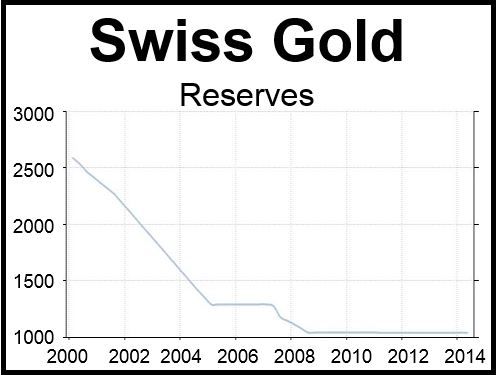On Sunday’s referendum in Switzerland more than three-quarters of voters rejected the proposal to build up gold to 20% of the central bank’s reserves, while about 74% said no to reducing annual net immigration numbers. They also voted not to change tax privileges for rich foreigners.
The two voting percentages are projections from results in 19 of Switzerland’s 26 cantons.
Supporters of “Save our Swiss Gold” proposed that the Swiss National Bank should hold one-fifth of its reserves in gold by the end of the decade. If voters had agreed, the central bank would have been forced to buy over $60 billions’ worth of the precious metal.
The anti-European Union Swiss People’s Party had also proposed that all Swiss gold be kept at home, which would have meant that 30% of its current gold reserves, which are kept in England and Canada, would need to be repatriated.
Swiss central bank’s governor Thomas Jordan had said he was against the “dangerous” idea, arguing that the country would lose elbow room when currencies became volatile.
Since the beginning of the millennium, Swiss gold reserves have declined considerably. (Chart: Trading Economics)
One of the proponents of the measure, Swiss People Party member Luzi Stamm, said he was disappointing with the referendum results, and had no plans to put forward another proposal to limit Swiss National Bank’s options for managing its gold reserves. He had argued that it was wrong for the central bank to tie its monetary policy to the weakened euro.
Immigration curbs rejected
Swiss voters also rejected the proposal to reduce annual net immigration to 0.2% of the population. The country’s main political parties had all been against the idea.
It would have meant net immigration falling from 80,000 to 16,000. Proponents had argued that public services in the country could not cope with the current numbers.
Business leaders insisted that without immigration the Swiss economy would suffer significantly.
Switzerland has several treaties with the European Union it is trying to salvage. Curbing immigration would have made the task much more difficult.
About 60% of voters rejected the proposal regarding lump-sum taxation measures for wealthy foreigners.

